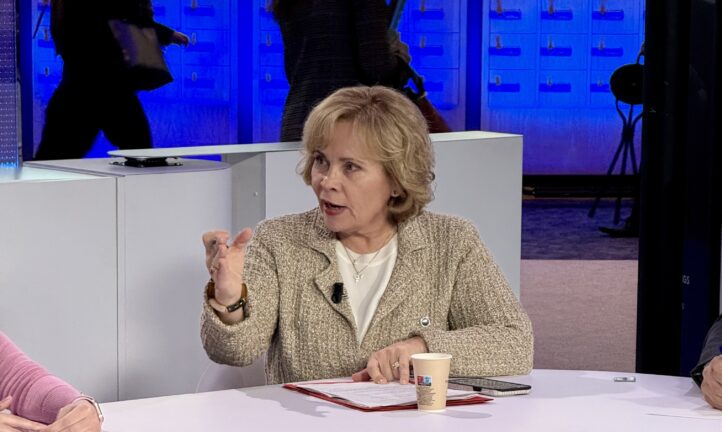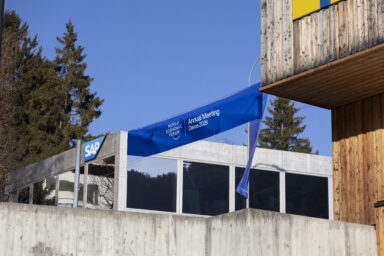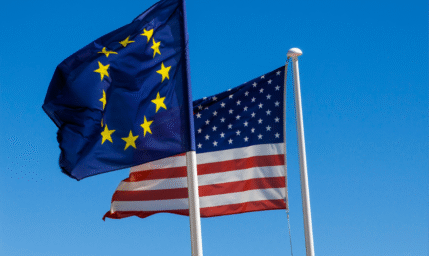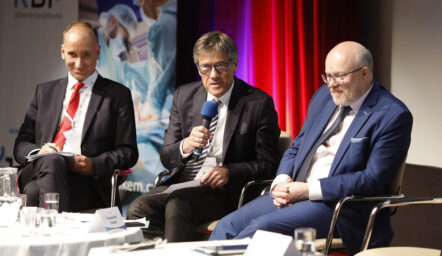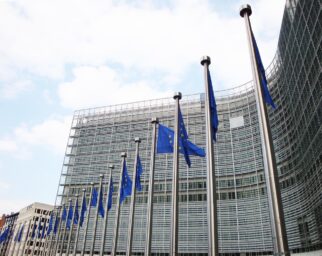The Spanish Socialists killed the European Parliament’s more resolute approach to the EU military overhaul last week in Strasbourg, the MEP Rasa Juknevičienė says. Meanwhile, Moscow is out to destroy or enslave everything that is not Russian, the Lithuanian ex-Defence Minister warned in the latest episode of the EU Perspective podcast from Brussels’ European Parliament. The debate also featured her fellow MEPs Petras Auštrevičius (Renew/LI) and Markéta Gregorová (Greens-EFA/CZE), as well as Martin Fedor, Slovakia’s ex-Defence Minister.
The picture is not always pretty, but Rasa Juknevičienė sees it with uncompromising clarity. When it comes to defence, the Lithuanian MEP certainly has the chops: having served as her country’s defence minister and as a NATO connection in various Lithuanian and European Union capacities, she has been closely involved with the sector for the better part of the 21st century.
Common threat assessment
Decades of service have done little to saddle her speech with legalese, jargon, or diplomatic meandering. “Let me be very clear” appeared to be her favourite phrase in the debate – and clear she was.
“Speaking about threats, I want to have some clarification to understand where we are,” the EPP Vice-Chair said. The reason for defence becoming the talk of the town, including the planned surge of EU-wide military spending, has come about “not because of the ongoing war in Ukraine, it’s because of Russia”, the MEP said resolutely.
The current Russian Federation is but a mixture of the country’s past totalitarian regimes, she said. “The Russkiy Mir is coming to destroy not only Ukraine, but to destroy democracies. And if we speak just about the war in Ukraine, it means that we don’t have a clear assessment of the threat. We have to understand that this war is (being waged) against the European Union as well.”
You might be interested
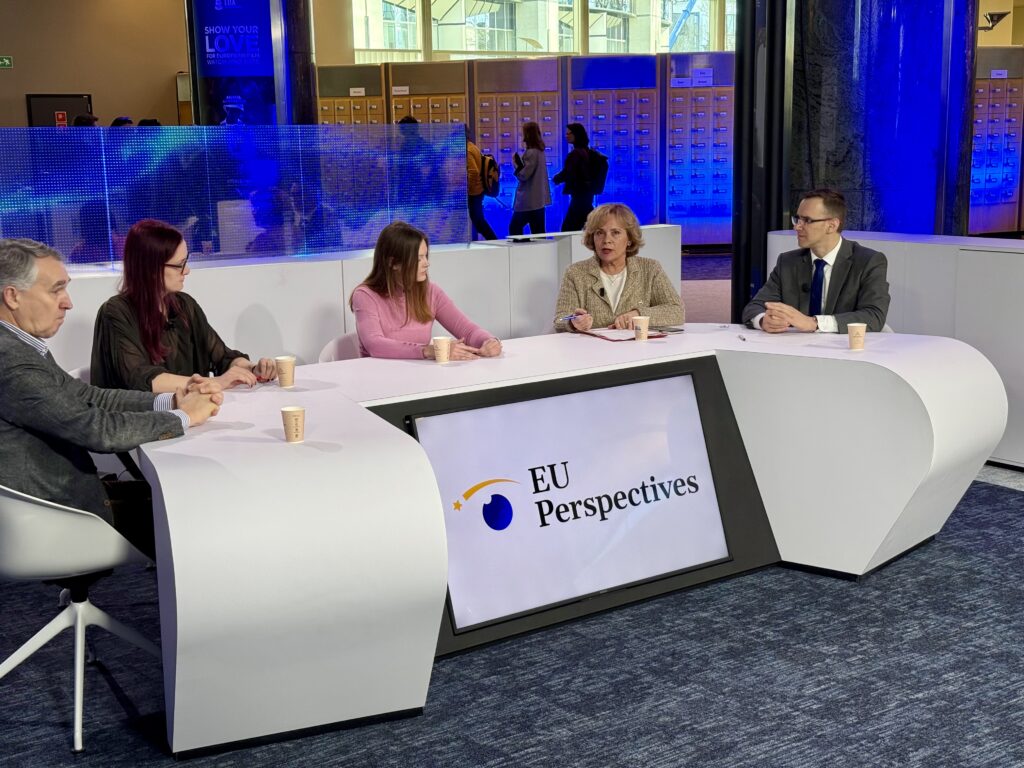
We never slept
Hailing from the Baltic region, Ms Juknevičienė knows a thing or two about Russia’s expansiveness. She was quick to dismiss the oft-entertained notion that the European Union somehow sleepwalked into today’s defence crisis. “I’m trying to be very clear when we are saying that the European Union was sleeping and suddenly woke up,” she said. “Some countries never slept. Sorry to say so, but we never slept. The situation was very different some years ago, but it’s not like we just woke up two years ago,” she appeared to deflect some of the current criticism away from the Union.
She did, however find fault with the individual countries’ approach to their NATO commitments. “Security and defence was based on NATO on the European continent. In one of the Alliance’s summits, there was a very clear declaration that every single member state was to spend not less than two per cent (of GDP). Very few countries took it seriously.”
Ms Juknevičienė went on to acknowledge the problem that some of the EU member states have, indeed, been asleep until now, and that this did not bode well for any effective EU defence arrangements in the future. “I am not very optimistic after the negotiations we had about – and voted on – the resolution on the White Paper in Strasbourg last week,” she said. “Why? Because the Socialists, especially those from Spain, where they are the ruling party today, they deleted even a mention of the three per cent (of GDP going to defence spending). It was then that I understood that some people were not serious about the threat coming from the Russian Federation.” You can hardly be clearer than that.
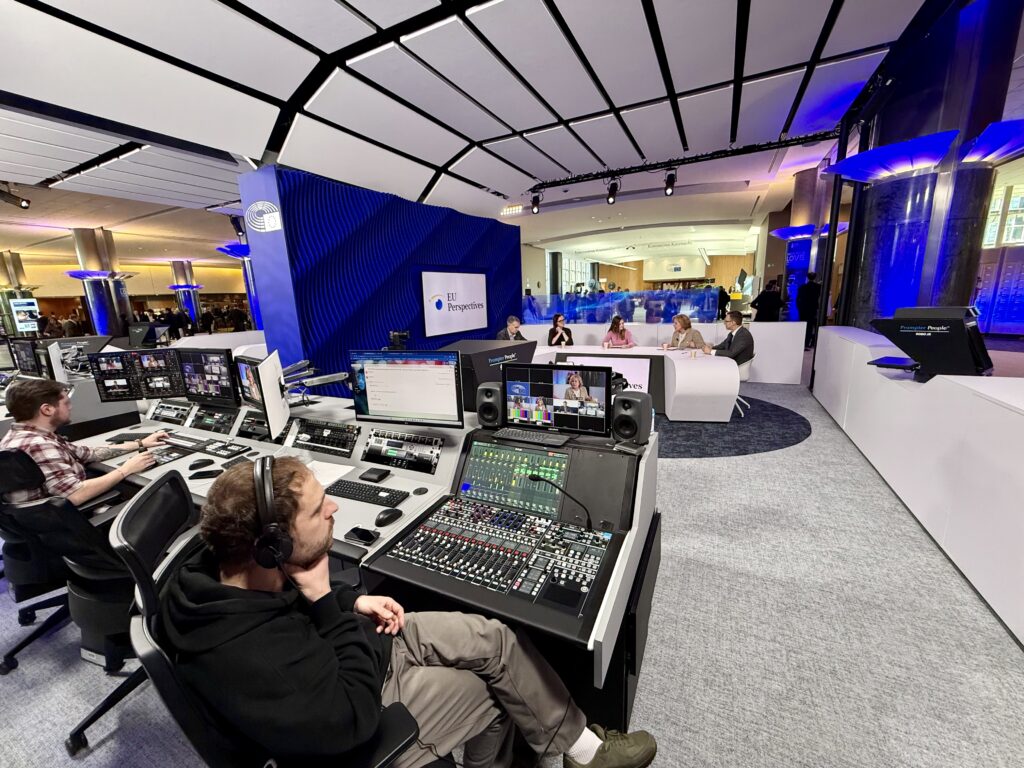
She was only a tad less straightforward when it came to the suddenly tumultuous EU-US relationship. “Now when we have this new situation across the ocean, I see more crisis in NATO than in the EU on security and defence,” she pondered. “Unfortunately, the EU is not ready yet to take over security and defence on its own. We still desperately need NATO, a strong Euro-Atlantic bond.”
Across the Atlantic, not the same trust
She paused before expressing the sense of the new reality descending on Europe. “The EU has now threats coming from both sides: from one side, there is the very direct military threat from the Russian Federation. From the other side of the ocean, we… don’t have the same trust as it was before,” she then appeared to relent, finishing her thought perhaps somewhat less explosively than it started.
On the crucial question of the day, whether she supported the current Commission-led military buildup on the one hand and the idea of the coalition of the willing on the other, Ms Juknevičienė was adamant. “Should we defend ourselves the same way as we expected some years ago? There is no other way but to strengthen the EU angle of our defence. This is now becoming a priority. This is why we are here, and we have to do a lot, and time is ticking. The war against Ukraine is existential for our future.”
On the chances of success, the MEP then painted the diplomatic picture in broad brush strokes. “We have the solidarity, but when we look into defence spending, there’s no solidarity at all. I will be frank and open: Countries like Spain or Portugal may feel that it’s not their threat. ‘Oh no, we are so sympathetic to those Baltics or those Polish or Romanians, they live somewhere close to the border. But we will survive somehow, and we have other priorities – our people need higher pensions and so on. Of course, we support you, we will send you some money’ or something like that, but…”
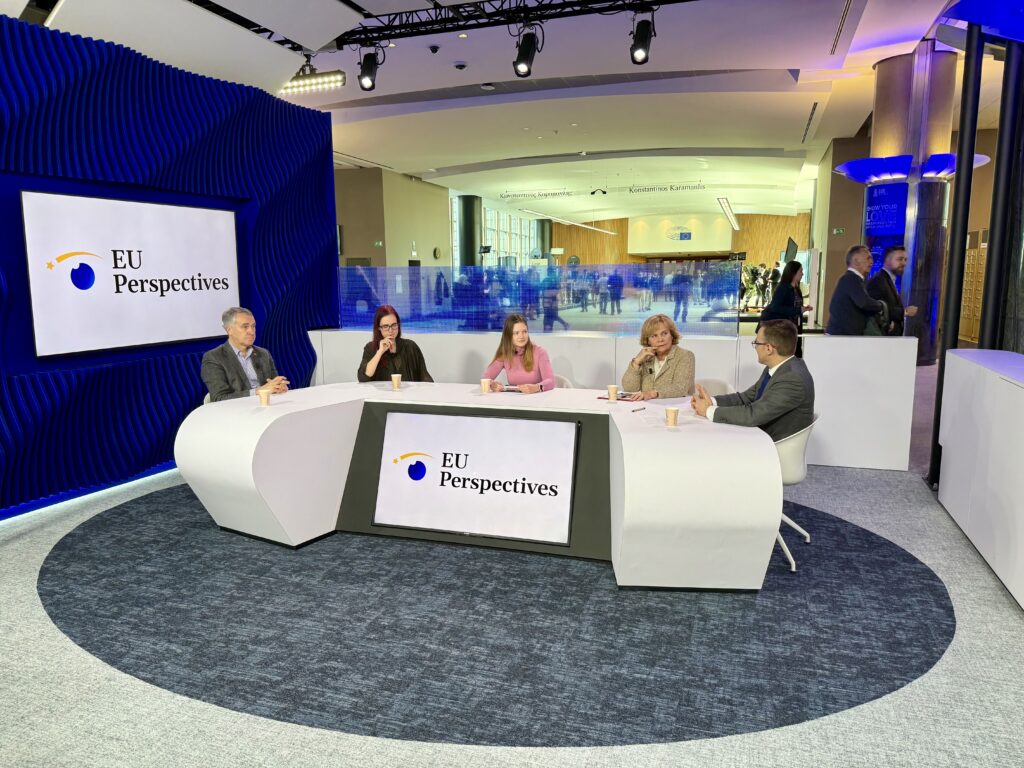
“We will survive without the Baltics”
She then put into words what usually remains unsaid in the politely detached environment of the European Parliament. “Sorry, I have never, ever said this before. But I will say this now that I feel maybe some people in those countries think that without the Baltics, OK, maybe we will survive. We lived without the Baltics – or others – more than fifty years. So we will survive without them again, just not to have WW III, just not spend more for defence. Because we want to keep our pensions higher,” she let rip.
“So I am sorry, I may be too open. I am not polite enough, but we have to try to understand that it will be not the same life. If three tiny countries like the Baltics disappear from the map, or parts of Poland disappear from the map, or parts of Finland again are occupied, or the Black Sea is controlled by the Russian Federation only, will it be the same strong European Union with the same good life in Spain or Greece?” she asked a question that may still appear merely rhetorical in some quarters.
Ms Juknevičienė was opposed at this point by her Lithuanian compatriot, fellow MEP Petras Auštrevičius. “For me, the phrase coalition of willing is not enough,” the Renew faction member said. “It’s willing like, you know, I may make a decision to come or not” without having to face any consequences, he said.
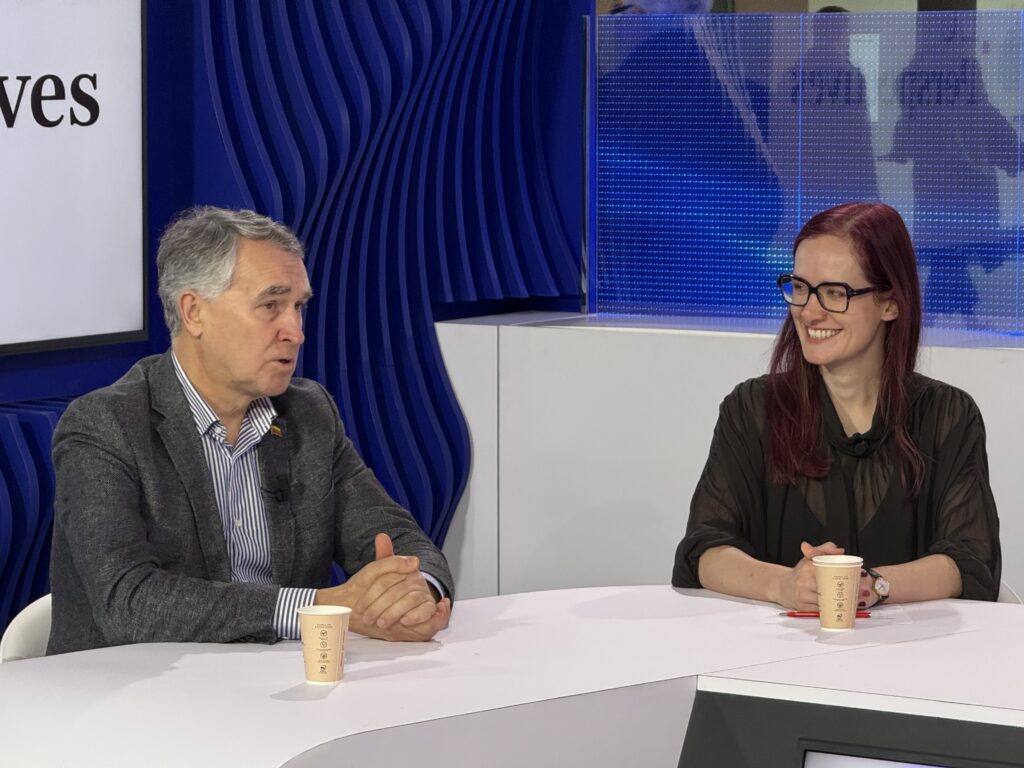
Far from diluting the resolve, Mr Auštrevičius asked for more. “It must be a coalition of the committed. Then you can have certain planning of subsequent investments, some response to the results achieved, and so on and so forth. Let’s be very cautious about this ‘coalition of the willing’ because it’s a very ambivalent description of the cooperation. We need more commitment and probably more coordination from the European Commission,” said the erstwhile ambassador in Finland, who once was, aged 31, the youngest ambassador in his country’s history.
Handling Orbán
A former envoy to NATO, Ms Juknevičienė appeared less inclined to trust the Union structures alone. „Defence and security, it’s not only about the European Union, it concerns the European continent. So that’s why I am welcoming very much the signs from Britain that they are back. They left the European Union, but not the continent. We desperately need Britain on board; and Norway with their capabilities in the Nordic flank; and even Turkey and other countries willing to have this coalition,” she said.
Ms Juknevičienė then mentioned one of the reasons why, in her view, the EU in its current state is poorly equipped to deal with defence issues. “(The coalition) must be broader than only European Union-based, where we are fighting Orbán all the time. Every single European Council is about Orbán. That’s why I hope that Britain and, of course, Germany and France, will understand the importance of this process,” she argued. “We cannot always complain that Orbán is not allowing this or that.”
The issue how to circumvent the Hungarian prime minister’s intransigence on defence matters was clearly on the debaters’ minds. Ms Markéta Gregorová, a Czech MEP, appeared more inclined to prefer a modification of the EU decision-making process to sidestepping it. “I think that in the current circumstances, we know that certain European governments, and I will name and shame Hungary and Slovakia, (who) are currently listening to what the Putin’s propaganda is saying rather than what the European interest is, in this scenario, we still unfortunately have the veto in the Council,” the Greens/EFA member said, appearing ready to tackle the notoriously immovable procedural obstacle head-on.
Hearts and minds
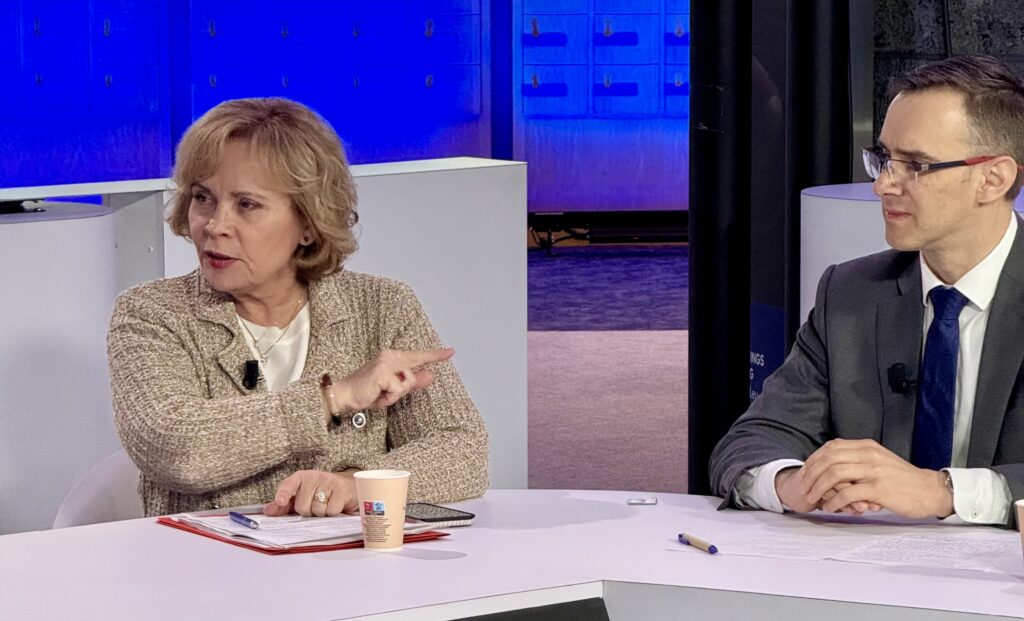
“Still, we have twenty-five (allies) – or, hopefully, twenty-six, counting in Slovakia,” Ms Juknevičienė then turned, almost apologetically, to another debate participant, Martin Fedor, Slovakia’s ex-Defence Minister.
Mr Fedor was quick to acknowledge the controversial nature of his country’s current leadership. “(I think we must also address) the information campaigns, which I would consider Slovakia to be a victim of, actually,” he said while stressing that, with his official duties behind him, he was “free to express his opinions”. “It’s also a battle for our minds and hearts, what we believe in, whether we are going to help each other inside the Union or not. And (the Russians) know how to approach this. They may destroy the unanimity inside the European Union, so nobody would be even willing to actually fight,” Mr Fedor said.
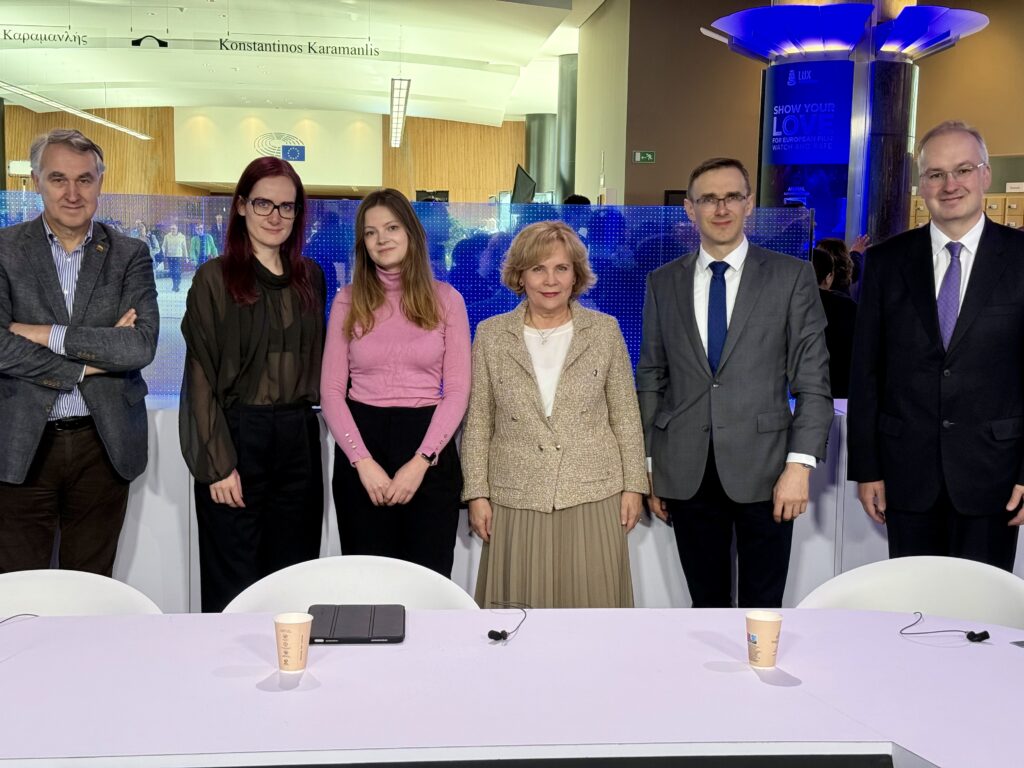
The perceived potency of the Russian propaganda, however, was lost on Ms Juknevičienė and the clarity of her vision. “Putin sometimes knows our capabilities better than we do,” she said. “With security areas around Russia left empty, this (Russia’s aggression against its neighbours) will happen again,” she left no doubt as to what Europe is facing.
